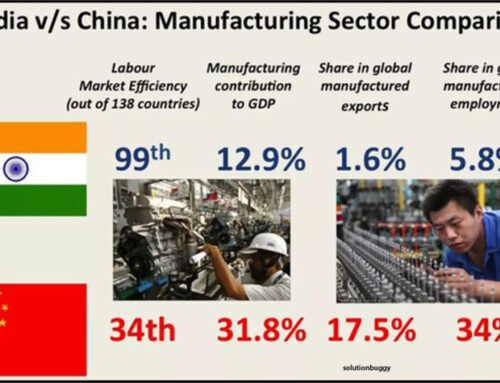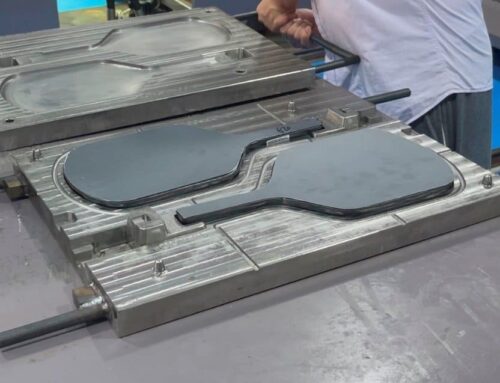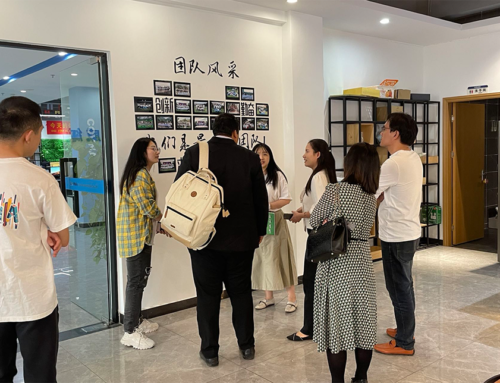As China’s manufacturing industry continues to grow, more and more international brands are turning their attention to the Chinese market, choosing Chinese suppliers for contract manufacturing. Compared to attending trade shows or conducting on-site inspections in China, online communication is undoubtedly more convenient and efficient. In this process, Alibaba, as the largest B2B online platform in China and the world, has become the go-to choice for novice buyers seeking suppliers. However, suppliers may offer widely varying quotes depending on the customer. Learning how to obtain a reasonable and accurate quote from these quotes is a crucial skill for novice buyers.
Introduction to the Alibaba Platform
Founded in 1999 by Jack Ma and his team, Alibaba was designed to bridge the gap between global buyers and Chinese suppliers. Over the years, Alibaba has evolved into a comprehensive platform that connects millions of buyers and sellers worldwide. As one of the most influential B2B platforms globally, Alibaba not only dominates the domestic market in China but has also expanded its reach to the global market through its international site. The platform’s core strengths lie in its extensive supplier network and powerful data processing capabilities, enabling buyers to access a wide variety of products and detailed supplier information on a unified platform.
Alibaba’s platform boasts a user-friendly interface and advanced search functionalities that make it easier for buyers to find exactly what they need. Suppliers on Alibaba range from small enterprises to large manufacturers, catering to various needs, from small batch purchases to large-scale production. For novice buyers, Alibaba is not just a tool for obtaining product information and quotes; it also serves as a window into market trends and supply chain dynamics. The platform offers comprehensive search and filtering features, helping buyers effectively find suppliers that meet their needs. Additionally, Alibaba provides trade assurance services, offering buyers a certain level of transaction security, thereby instilling confidence in the procurement process.
Another significant advantage of Alibaba is its global reach, allowing buyers from different parts of the world to connect with Chinese suppliers easily. This has revolutionized international trade, making it more accessible to small and medium-sized enterprises (SMEs) that might not have the resources to participate in traditional trade shows or engage in direct sourcing from factories. Alibaba’s platform also offers various tools and resources, such as supplier verification services, which help buyers identify trustworthy suppliers and avoid potential scams. This level of transparency and support is crucial for novice buyers who may be unfamiliar with the intricacies of international trade.

How to Choose Suppliers
When selecting suppliers on the Alibaba platform, novice buyers often face numerous choices, but not all suppliers can provide high-quality products and services. The first step in choosing suppliers is to understand the types of suppliers, which are generally divided into manufacturers and trading companies. Manufacturers typically produce products directly, offering lower prices but requiring higher minimum order quantities (MOQ). Trading companies act as intermediaries, usually offering more flexible order quantities and a broader product selection, though at slightly higher prices.
A simple method to help novice buyers distinguish between manufacturers and trading companies is to look at the company name: companies with “Sports” at the end of their name are often manufacturers, such as “Xiamen ABC Sports Goods Co., Ltd.,” while companies with “Trading” or “Technology” at the end are usually trading companies, such as “Shenzhen ABC Technology Co., Ltd.” or “Ningbo ABC Trading Co., Ltd.” While this classification method is not absolute, it is generally a useful reference.
In addition, evaluating the credibility of suppliers is also crucial. Buyers can assess the reliability of suppliers by checking their certifications, transaction history, customer reviews, and factory photos. For novice buyers, working with reputable suppliers not only reduces procurement risks but also ensures product quality consistency. It is worth noting that some merchants on Alibaba may fake reviews; buyers should be cautious of suppliers with reviews involving more than five different products, as their credibility may be questionable.

Methods to Obtain Wholesale Prices
There are two main methods to obtain wholesale prices on the Alibaba platform: RFQ (Request for Quotation) and active inquiries.
RFQ
RFQ is a passive way to obtain quotes, where buyers can list their detailed requirements and post them on the RFQ marketplace, waiting for merchants to offer quotes. The advantage of this method is that it can attract more suppliers to bid, potentially leading to favorable prices. However, when using RFQ, it is important to clearly describe the requirements and include relevant images, specifications, or other materials so that suppliers can better understand and provide accurate quotes.
RFQ can be particularly effective for buyers who are not in a rush and are looking to gather a wide range of quotes to compare. It allows buyers to cast a wide net and receive offers from multiple suppliers, giving them a better sense of the market rate for their desired products. However, it’s essential to be as detailed and specific as possible in your RFQ to avoid receiving irrelevant or inaccurate quotes. By providing clear and comprehensive information, you increase the likelihood of attracting serious and qualified suppliers who can meet your needs.
Active Inquiries
Active inquiries involve buyers proactively contacting suppliers directly to inquire about product prices. The advantage of this method is that buyers can judge the supplier’s service level based on their response speed and professionalism while obtaining quotes quickly for comparison. However, the downside of active inquiries is that it requires more time and effort for supplier selection and communication.
Active inquiries are generally more suitable for buyers who already have a clear idea of what they need and have identified a shortlist of potential suppliers. This method allows for more personalized communication and the opportunity to negotiate directly with suppliers. It’s also an excellent way to assess how well a supplier understands your requirements and whether they are willing to accommodate specific requests. By actively engaging with suppliers, you can also build stronger relationships and establish a foundation for long-term cooperation.
In general, it is recommended that novice buyers combine these two methods to improve efficiency in obtaining wholesale prices. RFQ can help buyers quickly get a range of quotes for initial screening, while active inquiries can be used to contact suppliers who performed well in the RFQ process for further communication and price negotiation. This combined approach allows buyers to cast a wide net initially and then narrow down their options based on more in-depth discussions with selected suppliers.
Information Needed Before Obtaining Wholesale Prices
To ensure the accuracy and reasonableness of the quotes, buyers need to prepare the following information before inquiring: purchase quantity, target price range, surface material, surface treatment method, core type, core thickness, Gen 1, 2, 3 technology, whether custom accessories are needed, whether USAPA certification is required, and shipping method. The level of detail in this information directly affects the accuracy of the supplier’s quote, so buyers should be as thorough as possible when preparing this data.
| List | Value | Remark |
|---|---|---|
| Purchase Quantity | Actual Purchase Quantity, write 100 if less than 100 | |
| Target Price Range | If not available, leave it blank; after getting the first quote, reduce by $1 based on the first quote to gradually get a more accurate price | |
| Surface Material | Fiberglass,Carbon Fiber,Kevlar Fiber,Titanium Fiber | |
| Surface Treatment Method | Smooth Surface,Textured Surface,Raw Surface (Peel-Ply) | |
| Core Material | PP Honeycomb,Aramid Honeycomb,Composite Core,Gen 3 Core | |
| Core Thickness | 11mm, 13mm, 14mm, 16mm, etc. | |
| Manufacturing Process | Gen 1,Gen 2,Gen 3:Gen 1, Gen 2, Gen 3 | |
| Accessory Customization | Custom Colors,Custom Logo | |
| etc |
Tips to Prevent Suppliers from Quoting High Prices
When communicating with suppliers, mastering some tips can help buyers obtain more reasonable prices and gain an advantage in negotiations.
Prepare a Comprehensive Product Requirement Document
Before communicating with suppliers, prepare a detailed product requirement document that includes product specifications, material requirements, colors, sizes, packaging methods, etc. This practice not only reduces misunderstandings in communication but also demonstrates your understanding of the product and professionalism, avoiding being viewed as an outsider by suppliers and receiving high quotes.
A well-prepared product requirement document serves as a blueprint for your discussions with suppliers. It signals to them that you have done your homework and are clear about what you want. This level of detail discourages suppliers from inflating their prices, as they recognize that you are an informed buyer who will not be easily swayed by vague or incomplete information. Additionally, having a comprehensive document allows you to compare quotes more effectively, as you can see which suppliers are meeting your specifications and which ones are not.
Use Professional Terminology
Using industry-specific terminology in communication can make suppliers feel that you have a deep understanding of the market and products. For example, understanding and using terms like “MOQ (Minimum Order Quantity),” “FOB (Free On Board),” and “EXW (Ex Works)” can quickly establish a professional image, making suppliers less likely to quote high prices.
The use of professional terminology also facilitates clearer communication and helps avoid misunderstandings. Suppliers are more likely to take you seriously if you speak their language, and this can lead to more favorable terms in your negotiations. Additionally, it shows that you are familiar with the standard practices in international trade, which can help you navigate potential pitfalls and ensure that you are getting the best deal possible.
Focus on Details and Ask the Right Questions
Asking detailed questions about product manufacturing processes, quality control procedures, and certification standards shows your deep understanding of the supply chain. For example, asking suppliers whether they have ISO 9001 quality management system certification, or understanding their QC (Quality Control) processes demonstrates that you prioritize product quality and signals to suppliers that you are an experienced buyer.
By focusing on these details, you can also gauge the supplier’s capability and commitment to quality. A supplier who is transparent and forthcoming with information about their processes is more likely to be a reliable partner. On the other hand, if a supplier is evasive or reluctant to provide details, it may be a red flag that they are not as reputable as they claim. Asking the right questions also helps you identify any potential issues early on, allowing you to address them before they become bigger problems.
Develop a Clear Procurement Plan
When communicating with suppliers, present your procurement plan, including the purchase quantities for the coming months, expected growth trends, and long-term cooperation intentions. This not only allows suppliers to see the potential of your business but also helps them better plan production resources, offering more competitive prices and services.
A clear procurement plan also shows suppliers that you are serious about building a long-term relationship. This can lead to better terms and conditions, as suppliers are often willing to offer discounts or other incentives to buyers who demonstrate a commitment to ongoing orders. Additionally, by outlining your future needs, you give suppliers the opportunity to propose solutions that may be more cost-effective or efficient, further enhancing the value of your partnership.
Request Samples and Conduct Evaluations
Before placing large orders, request samples from suppliers and conduct thorough evaluations. The results of sample testing can serve as a basis for further negotiations, and requesting samples also shows your cautious attitude towards product quality. By doing so, you can avoid high-priced purchases while ensuring quality.
Sample evaluations are an essential part of the sourcing process, as they allow you to verify that the supplier can meet your specifications. It’s also an opportunity to test the durability, performance, and overall quality of the product before committing to a larger order. If the samples meet your standards, you can proceed with confidence; if not, you can use the findings to negotiate better terms or seek alternative suppliers. Additionally, the sample testing process can help you identify any potential issues that might arise during mass production, allowing you to address them early and avoid costly mistakes.
Maintain Documented Communication Records
Ensure that all key communications and decisions are documented through emails or formal documents. This not only helps both parties stay aligned in future cooperation but also serves as a reference for later, showcasing your professionalism and caution. This way, even if problems arise, there is documentation to rely on, reducing the likelihood of disputes.
Documented communication is also invaluable for maintaining transparency and accountability in your dealings with suppliers. It provides a clear record of what was agreed upon, helping to prevent misunderstandings and disputes. In the event of a disagreement, having written records can serve as evidence to support your position and facilitate a fair resolution. Additionally, it demonstrates to suppliers that you are organized and meticulous, further enhancing your credibility as a buyer.
Inquire and Understand the Supplier’s Production Capacity
Understand the supplier’s production capacity, including the number of production lines, monthly production volume, and maximum capacity. Asking these questions demonstrates your deep understanding of the supply chain and helps assess whether the supplier can meet your needs. This in-depth understanding of the supplier’s production capacity will also make the supplier perceive you as a professional buyer, making them more cautious in their quotes.
By mastering these tips, buyers can not only obtain more reasonable wholesale prices on the Alibaba platform but also establish solid cooperative relationships with suppliers, laying a strong foundation for the long-term development of their businesses.
The End about Mayvoci
1)Design:Over 100 paddle designs and photography service to assist start-up.
2)Professional:Focus on various of paddles manufacturing for 6 years
3)Quality:Strict quality management system to provide safety and satisfaction for customers
4)Amazon:Flexible comprehensive solution to make sure each Amazon seller is well cared.
5)Excellent Team:Experienced paddle experts & dynamic sales team give you 5-star service





